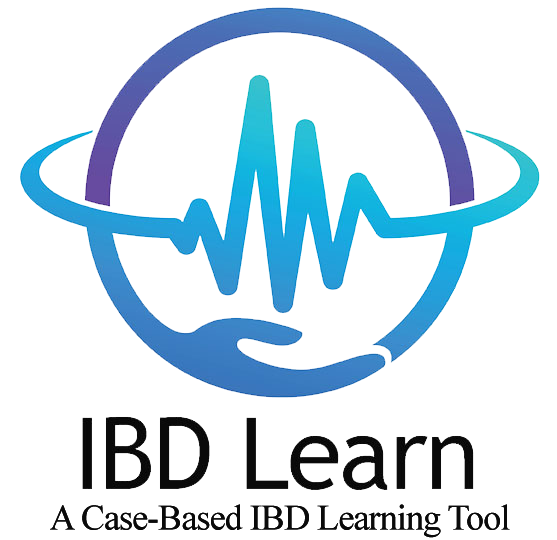Learning Objectives
- Identify the patient with acute severe ulcerative colitis at high risk of corticosteroid failure.
- List the indications for colectomy in the hospitalized patient with ulcerative colitis.
- Recognize the clinical factors affecting surgical risk in ulcerative colitis.
IBD EPAs
- EPA 2: Utilize Advanced Diagnostic and Therapeutic Endoscopic and Radiographic Techniques in the Management of Inflammatory Bowel Disease
- EPA 3: Prescribe and Manage Evidenced-based Inflammatory Bowel Disease Therapies Utilizing Clinical Pharmacologic Principles in Clinical Practice
- EPA 5: Manage Hospitalized Patients With Inflammatory Bowel Disease
- EPA 6: Manage Pre- and Postoperative Care for Inflammatory Bowel Disease
Discussion
Current data and guidelines support IV corticosteroids as a primary therapy for induction of remission in acute severe ulcerative colitis requiring hospitalization, but only for a limited duration. In patients who fail to respond to IV steroids in 3-5 days, rescue therapy with infliximab or cyclosporine is indicated, and surgical consultation should be obtained. The Ho and Travis scores were developed to identify patients at high risk of failing steroids by examining a few clinical parameters on day 3. The Travis score defines high risk as either > 8 bowel movements or 3-8 bowel movements with CRP > 45 mg/L on day 3 of treatment. The Ho score assigns points based on mean stool frequency, colonic dilatation, and hypoalbuminemia to stratify patients as high, intermediate, and low risk. These scores have been recently examined in the biologic era, and continue to identify patients more likely to fail steroids, undergo surgery, and be refractory to rescue medical therapy (anti-TNF or cyclosporine)
Absolute indications for colectomy in the setting of acute severe UC include toxic megacolon, perforation, uncontrolled severe hematochezia, and multiorgan dysfunction. Colectomy should be considered in any patient who fails to improve after 3-5 days of steroids, and especially if the patient fails to improve with either infliximab or cyclosporine. In this patient with severe UC refractory to 3 days of IV steroids, and prior failure of 3 biologic agents (infliximab, vedolizumab, and ustekinumab), surgery should be strongly considered. Tofacitinib is not a good option for this patient given her history of deep vein thrombosis, and another anti-TNF is not likely to have a better outcome than she had with infliximab. Delayed surgery for acute severe UC and prolonged preoperative steroid exposure are associated with increased risk of postoperative complications. Infliximab and cyclosporine do not increase postoperative complications of colectomy. Nutritional status, however, does influence surgical outcomes, with albumin < 3 g/dL, BMI < 18.5 kg, and weight loss of > 10-15% over 6 months associated increased perioperative infection, length of stay, and mortality. Enteral and/or parenteral nutrition supplementation should be considered perioperatively in these scenarios.
Other References:
- AGA/ACG Guidelines
- Schroeder KW et al. Coated Oral 5-Aminosalicylic Acid Therapy for Mildly to Moderately Active Ulcerative Colitis. N Engl J Med 1987;317:1625-1629.
- Lynch RW et al. Predicting outcome in acute severe ulcerative colitis: comparison of the Travis and Ho scores using UK IBD audit data. Aliment Pharmacol Ther 2016;43(11):1132-1141.
- D’Haens G et al. A Review of Activity Indices and Efficacy End Points for Clinical Trials of Medical Therapy in Adults With Ulcerative Colitis. Gastroenterol 2007;132:763-786.
Click here to move on to the post test
Click here to return to the start of the case
